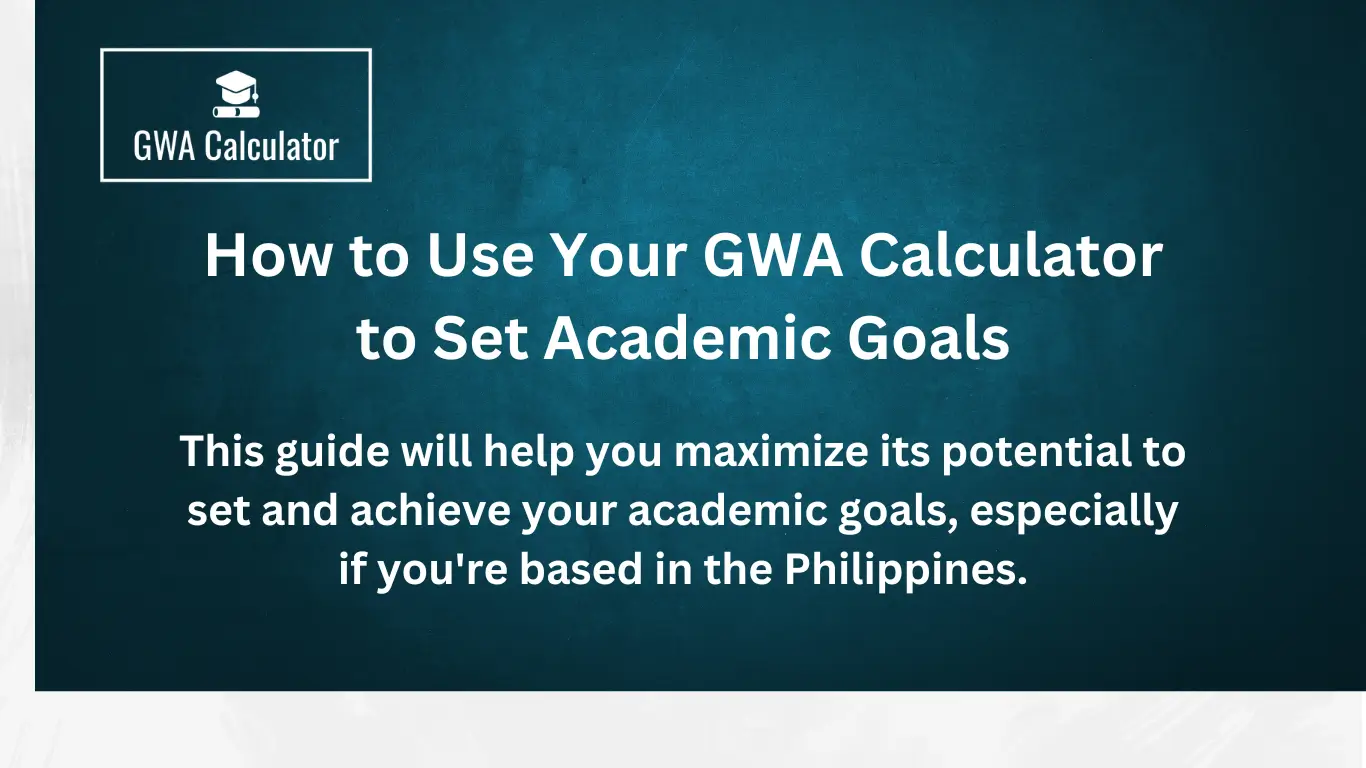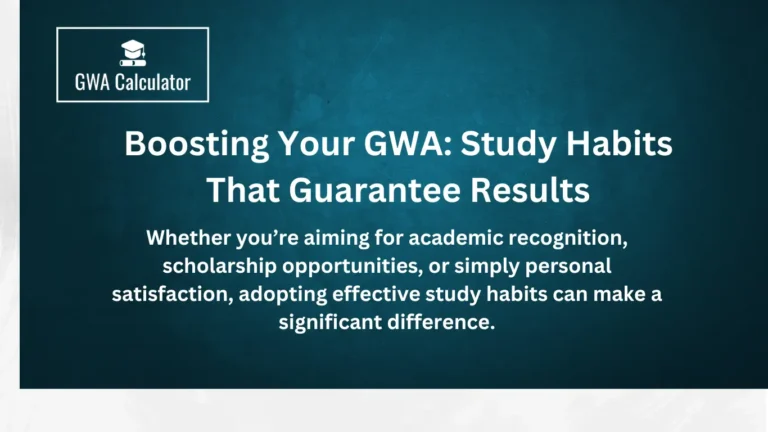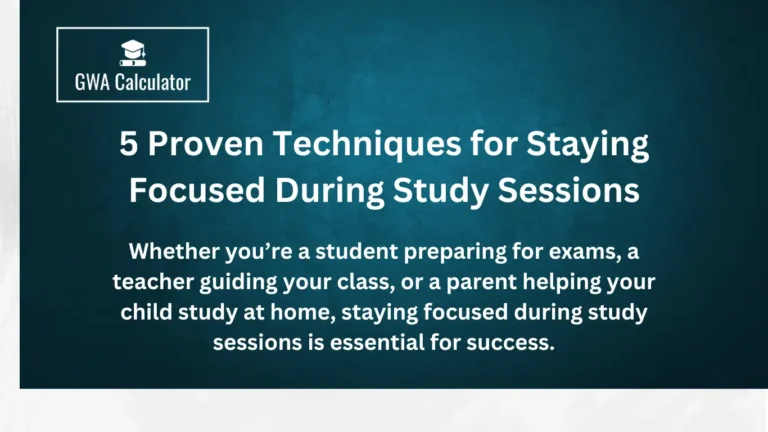How to Use Your GWA Calculator to Set Academic Goals
Academic success is a journey, and every student, teacher, and parent wants to make informed decisions that lead to better results. A Grade Weighted Average (GWA) calculator is an essential tool for understanding your academic standing and planning effectively. This guide will help you maximize its potential to set and achieve your academic goals, especially if you’re based in the Philippines.
What is a GWA Calculator?
A GWA calculator is a tool used to compute your average grade based on weighted scores of different subjects. It is particularly useful in the Philippines, where many schools and universities use GWA to assess students’ academic performance. Knowing your GWA helps you:
- Evaluate your current academic standing
- Identify areas of improvement
- Set realistic academic goals
Why GWA Matters
In the Philippines, your GWA can influence:
- Scholarship eligibility
- University admissions
- Academic honors
Understanding your GWA is the first step to taking control of your academic future.
Step-by-Step Guide to Using a GWA Calculator
1. Gather Your Grades and Weights
Before using the calculator, collect the following information:
- Grades for each subject
- Unit or weight of each subject
For example:
| Subject | Grade | Units |
|---|---|---|
| Mathematics | 90 | 3 |
| Science | 85 | 4 |
| English | 88 | 3 |
2. Input Your Data
Using a GWA calculator, input your grades and corresponding weights. The formula generally used is:
For the example above:
3. Interpret Your Results
The calculated GWA gives you a clear picture of your overall performance. Compare this result with your academic goals or requirements for scholarships and honors.
4. Set SMART Goals
Once you know your GWA, use it to set SMART goals (Specific, Measurable, Achievable, Relevant, Time-bound):
- Specific: Aim to raise your GWA from 85 to 90 by focusing on core subjects.
- Measurable: Monitor your grades each semester to track progress.
- Achievable: Identify one or two subjects where improvement is realistic.
- Relevant: Focus on subjects that heavily influence your desired career.
- Time-bound: Set a timeline, such as achieving your goal within two semesters.
Tips for Students, Teachers, and Parents
For Students:
- Use Your Strengths: Focus on subjects where you excel to boost your overall GWA.
- Seek Help: Don’t hesitate to ask for assistance in challenging subjects.
- Stay Consistent: Regularly monitor your GWA to ensure you’re on track.
For Teachers:
- Provide Guidance: Help students understand how their grades contribute to their GWA.
- Use Data for Planning: Identify patterns in class performance and adjust teaching strategies accordingly.
For Parents:
- Encourage Communication: Discuss your child’s academic goals and challenges.
- Support Learning: Provide resources or seek tutoring if necessary.
Common Mistakes to Avoid
- Neglecting Low-Weighted Subjects: Even low-unit subjects can impact your GWA.
- Procrastinating: Waiting until the end of the term to check your performance can limit improvement opportunities.
- Misinterpreting Results: Ensure you understand how the GWA aligns with your academic requirements.
Conclusion
A GWA calculator is more than just a number-crunching tool—it’s your partner in academic success. By understanding your current standing, setting SMART goals, and leveraging the support of teachers and parents, you can unlock your full potential. Start today by calculating your GWA and planning your path to academic excellence!
Use our free GWA calculator to start setting your goals today!







